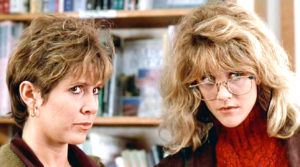Feminism 30 years ago was busy raging against the glass ceiling; today it’s more likely to be discussing maternal instincts. Where women were once told they could enjoy hook-up culture for as long as they liked, now they are being told to settle down early. That is not what I did.
At 53, I live alone with a dog and sometimes eat dinner over the sink. Aside from the high cost of not splitting living expenses, I consider this arrangement to be optimal. Not having children brings me joy. But I’m an outlier. The majority of women are supposed to want kids and the implicit message even during the sexual revolution was that you would have your Carrie Bradshaw-style fun until the last possible minute, then slide seamlessly into family life with full confidence that you’d “done it all”. And yet by 2030, 45% of women will be single and childless — in most cases not by choice.
The stories we tell about these single, childless women matter. So I was intrigued when I heard about What Happens Later, the new romantic comedy directed by and starring Meg Ryan, whose career has been defined by the promise, and box office success, of Big Romance. Her genre has always been implicitly based on women finding the one well before the age her fertility starts to decline; but in her new film, there’s sexual tension between two attractive, middle-aged people who’ve had interesting, complicated lives.
Bill is an uptight, unhappily married corporate drone. Willa is a messy free spirit who works less-than-ruminatively as a wellness practitioner. She’s travelling from Austin to Boston; he’s travelling from Boston to Austin: they meet in the middle. But Bill and Willa are not strangers; they had a serious relationship 25 years earlier, in college. As such, they are not two older people falling in love but old lovers relitigating the past. Stuck in a regional airport enveloped by the storm of the century, they grouse about bad pop music, before getting to what might be the defining questions of their lives: why did they let their relationship go? Given what they know now, would they have been better off sticking it out?
The film doesn’t presume to answer that question. Still, its subtext wrestles with the failures of the sexual revolution in a similar way to the new feminist sceptics and, in its own way, takes a page straight out of the neo-trad playbook. It turns out that Bill and Willa broke up not because of some intractable compatibility problem but because they decided to open the relationship to other sexual partners. As he hid his jealousy behind a stoic exterior, she found herself unable to seize the opportunities at hand, even though seeing other people was all her idea, something she thought she was supposed to want. After parting, he went on to have a decent but unremarkable life and she went on to have something a bit worse than that — freedom of the nothing-left-to-lose variety. In short, they are both sad. Her especially.
Billed as a romantic comedy, What Happens Later is in fact a deeply sad movie about loss, regret, missed opportunities and gross miscommunication — a cautionary tale about what happens if you hedge your romantic bets. These two didn’t break up because of some intractable compatibility problem; they just wanted, well, more. Given all the ways in which they annoyed one another, it seemed only right to move on and keep looking for something better. To settle for what they had — a deeply imperfect but (at least according to my reading of the film) deeply connected relationship — would have been a betrayal to not just to their personal happiness but to some larger politics of social progress.
Is there an increasing number of Willas? In 2010, Lori Gottlieb, a single mother in her forties, published Marry Him: The Case For Settling For Mr. Good Enough. A jeremiad against the impossible mating standards imposed upon men by high achieving women — he’s not tall enough, rich enough, smart enough, funny enough, able-to-read-my-mind enough — it pushed hard against generalisations about entitled, marriage-hungry women, but ultimately made a radical point. Women’s rising economic status means there will be fewer men of equal or higher status to pair up with. Therefore, a certain number of women will have to “settle” for something more realistic than Big Romance, at least if marriage and family is what they want.
Personally, I do not consider the sexual revolution a failure. For all its unintended consequences, women are better off now than we were 50 years ago in too many ways to count. But the fact that those who wish to marry and then devote a significant portion of their lives to raising children are actually embarrassed to say so out loud suggests that this revolution lost the plot even as it won over the masses.
Somehow we find ourselves at a time in history when nature itself is the problem. Biological clocks are sexist by definition, and should be outsmarted through technology. The idea that two parents are better than one is retrograde and discriminatory and, therefore, should not be discussed. As for picking the best person with whom to do that parenting: should young people really be trusted with such decisions? Modern society may say “no, keep looking. You could always do better”. Nature, for better or worse, says “quit while you’re ahead”.
It’s not guaranteed that the two characters in What Happens Later would have been happier if they’d stuck out their relationship rather than looking for more. Maybe they’d have been just as unfulfilled, but in a different way. Still, the movie, whether or not it means to, tells us that these people gave up too easily. It may purport to be a celebration of second chances, or at least the possibility of a do-over. But at its core it’s a reminder, paradoxically, that the best romantic relationship is like the closest exit on an airplane: potentially behind you.
Disclaimer
Some of the posts we share are controversial and we do not necessarily agree with them in the whole extend. Sometimes we agree with the content or part of it but we do not agree with the narration or language. Nevertheless we find them somehow interesting, valuable and/or informative or we share them, because we strongly believe in freedom of speech, free press and journalism. We strongly encourage you to have a critical approach to all the content, do your own research and analysis to build your own opinion.
We would be glad to have your feedback.
Source: UnHerd Read the original article here: https://unherd.com/



